
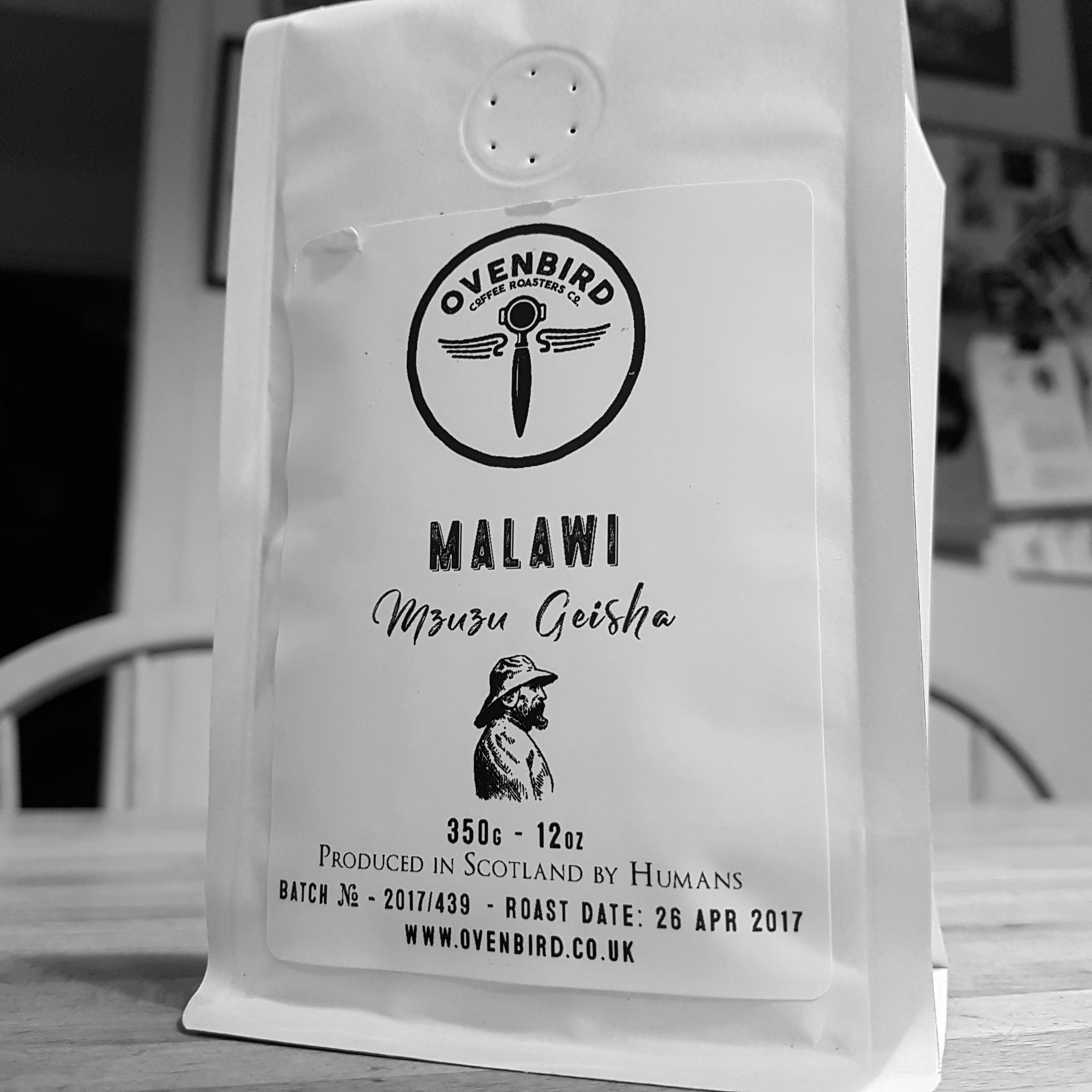
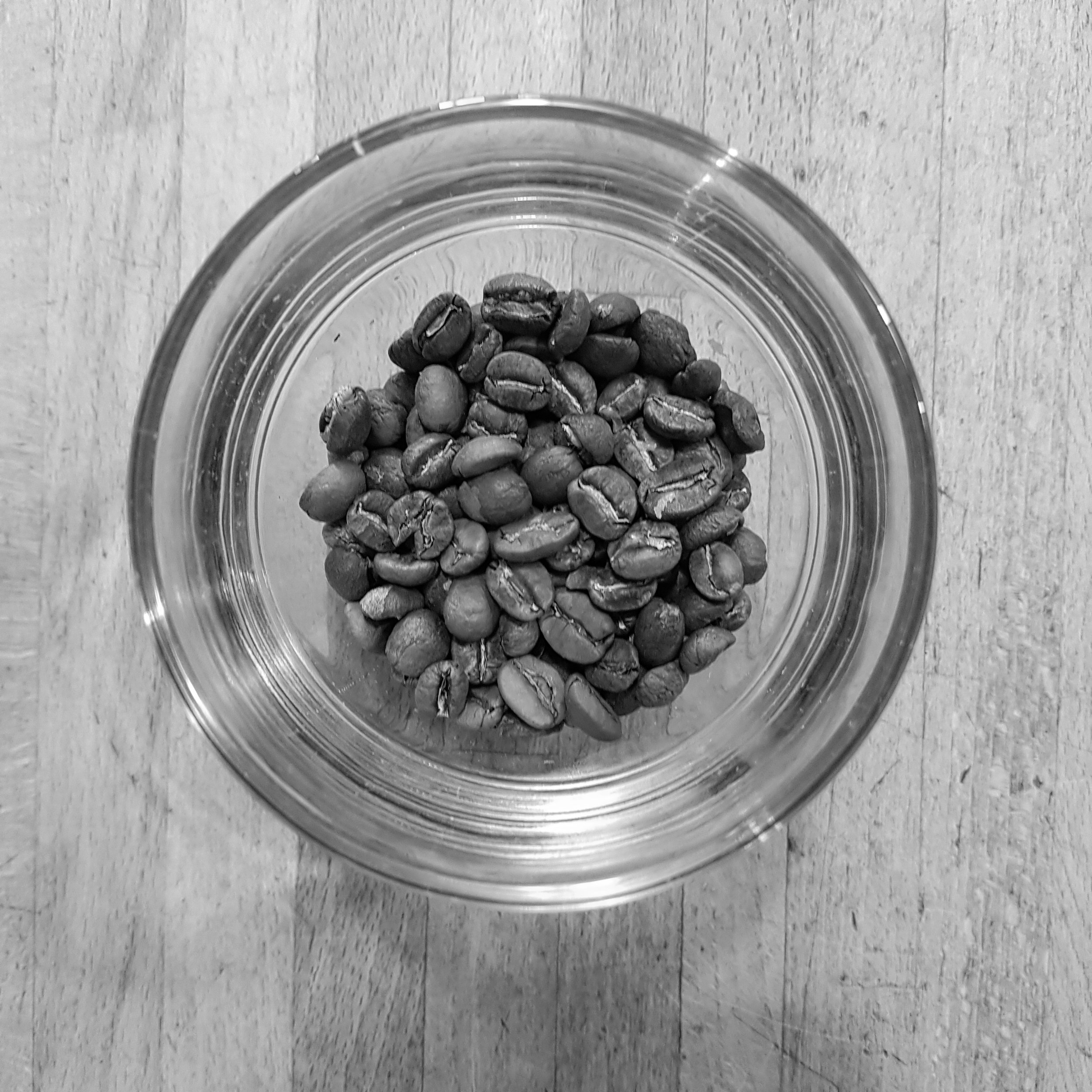
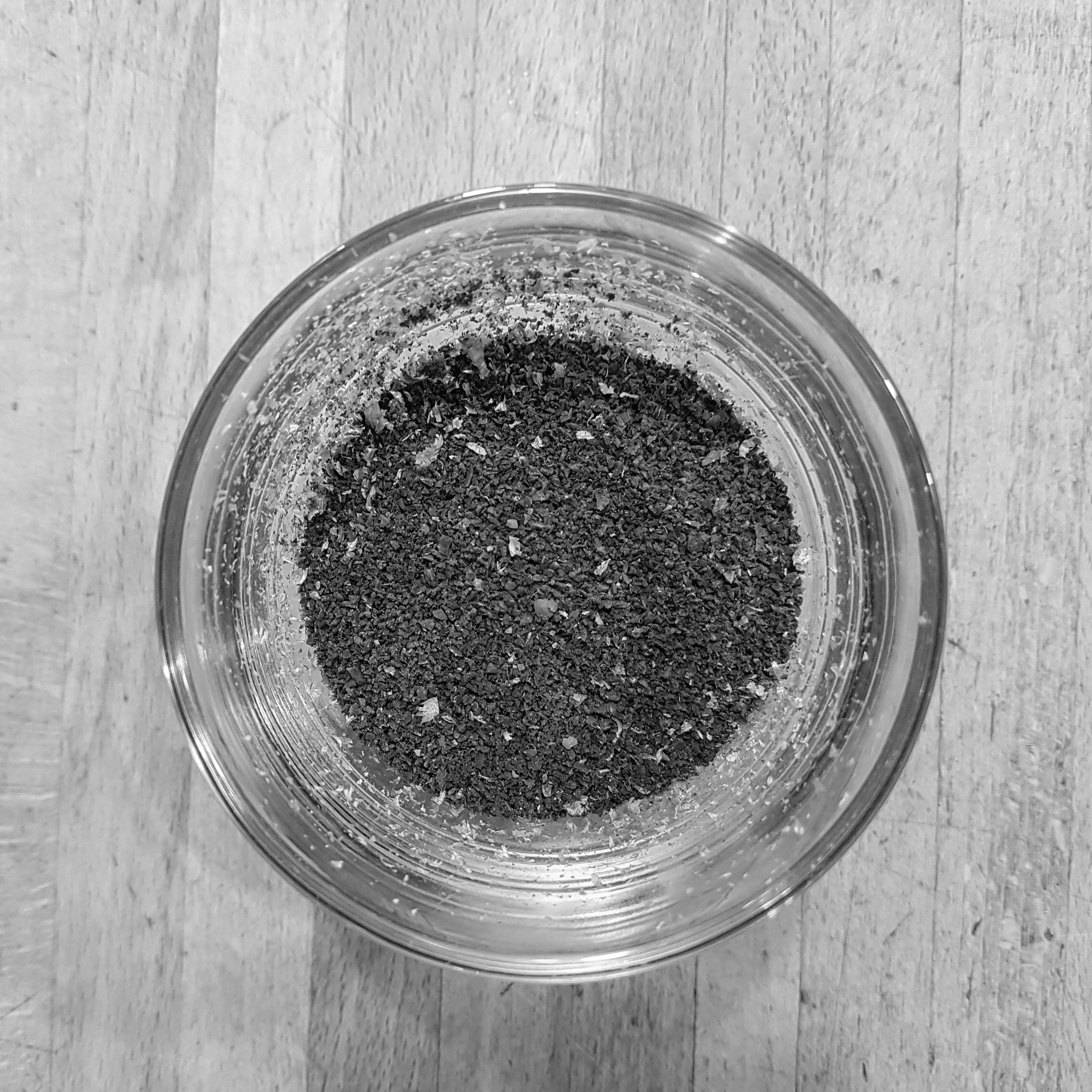
Coffee has a long history in Malawi, but it’s still surprising to learn its origin: according to James Hoffmann, in his book The World Atlas of Coffee, it was a Scottish missionary, Dr James Buchanan, who first introduced the plant to this East African country. In 1878 he brought over a single shrub from the Royal Botanic Garden in Edinburgh, coffee farming took root in the southern Blantyre region, and by 1900 it had become a valuable export.
It’s rather extraordinary to think that coffee went from Edinburgh to Malawi in 1878 and, nearly a hundred and forty years later, I bought a bag from a roaster in Glasgow. Ovenbird Coffee Roasters pride themselves on roasting old-school: by smell and sense rather than graphs and charts. As they say on their website: “We rely on highly trained brains, not computers, to see through the intention of our roasting style. We are more concerned about the qualities of a coffee that drove us to buy it in the first place: cleanness, sweetness, acidity, complexity.
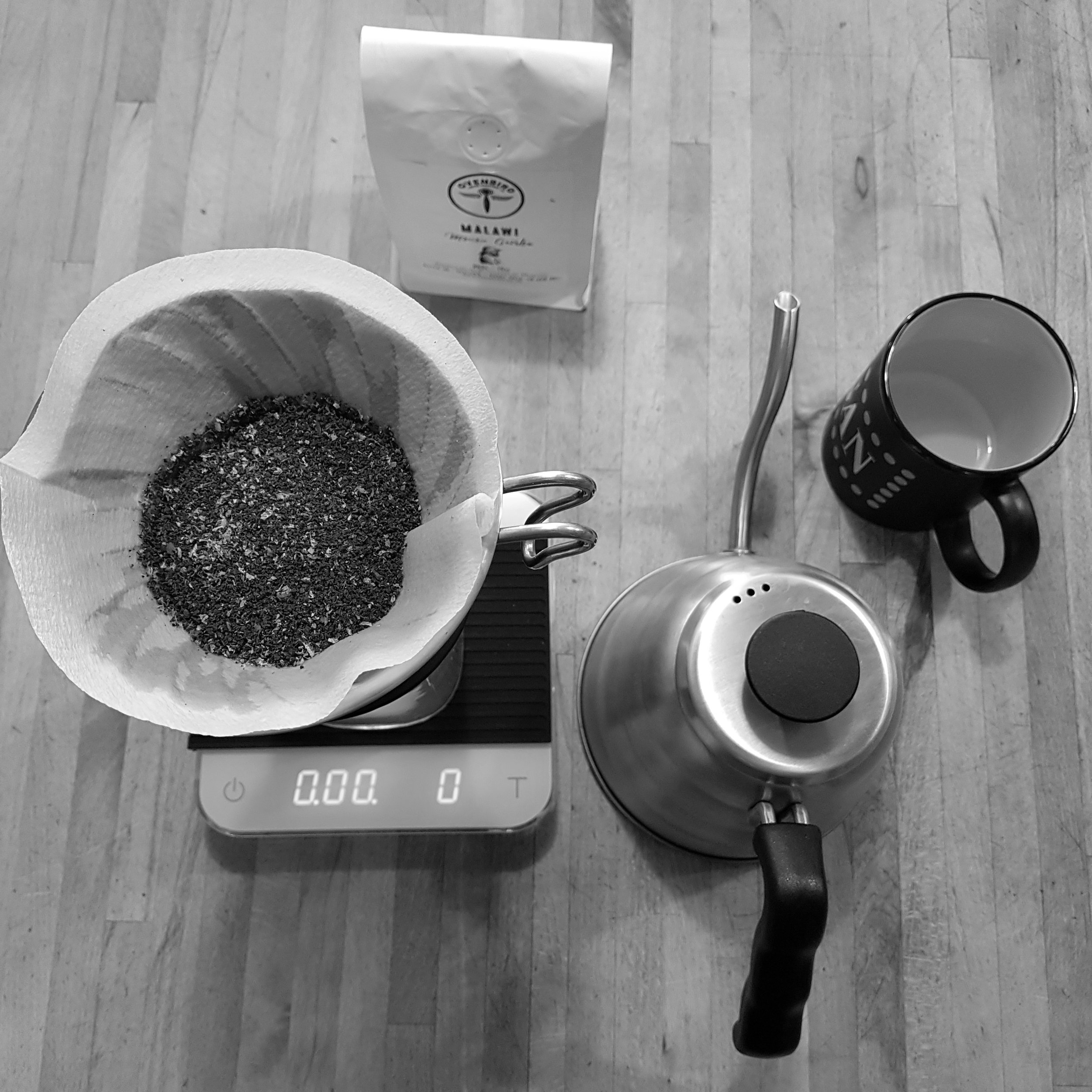
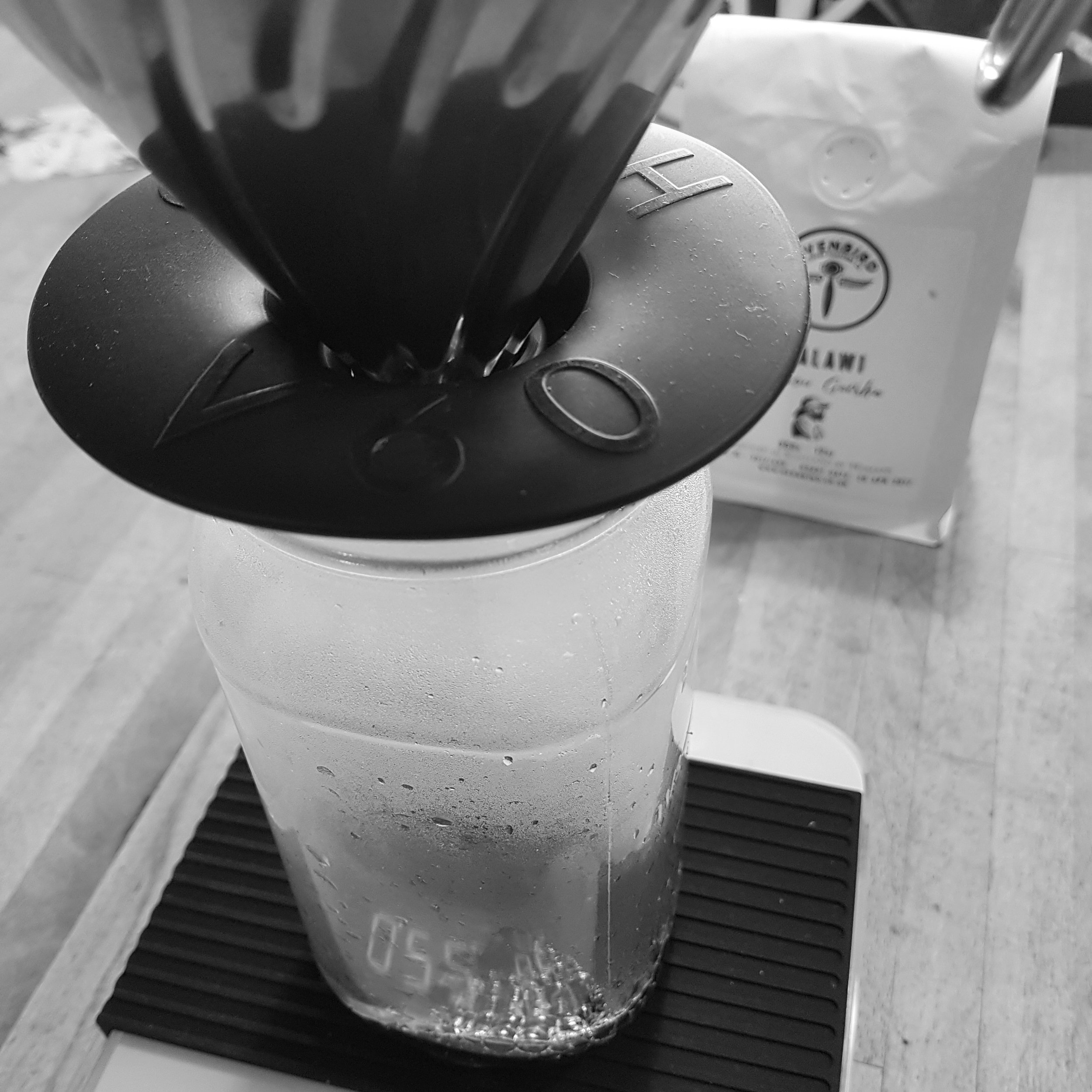
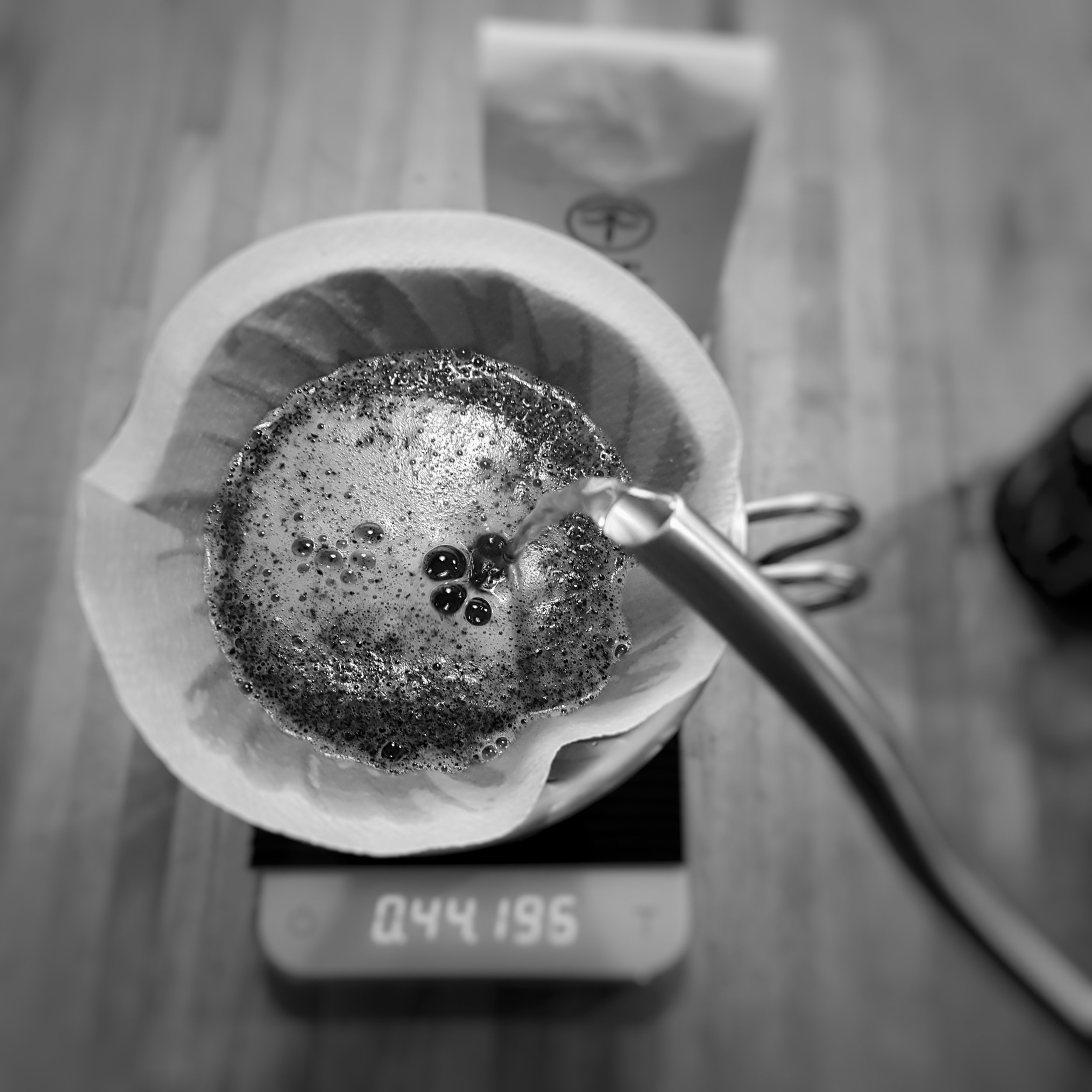
They buy mostly from East Africa, as well as the occasional jaunt to the Americas. This particular coffee comes from northern Malawi, courtesy of the Mzuzu Coffee Planters Cooperative. A cooperative union representing 3,000 smallholding farmers, a quarter of whom are women, they work hard to improve the lives of their members as well as produce exceptional coffee. This particular lot comes from several farms dotted around the northern highlands, at altitudes between 1300 and 2500 metres above sea level. It is a geisha variety and fully washed, and I am looking forward to it.
The coffee arrives in a white matte stand-up bag, squat and fat and smelling of roasted peanuts and glory. One thing worth mentioning: with Ovenbird you get 350 grams of coffee per bag, which is 100 grams more than most other roasters I’ve bought from, as well as free shipping within the UK.
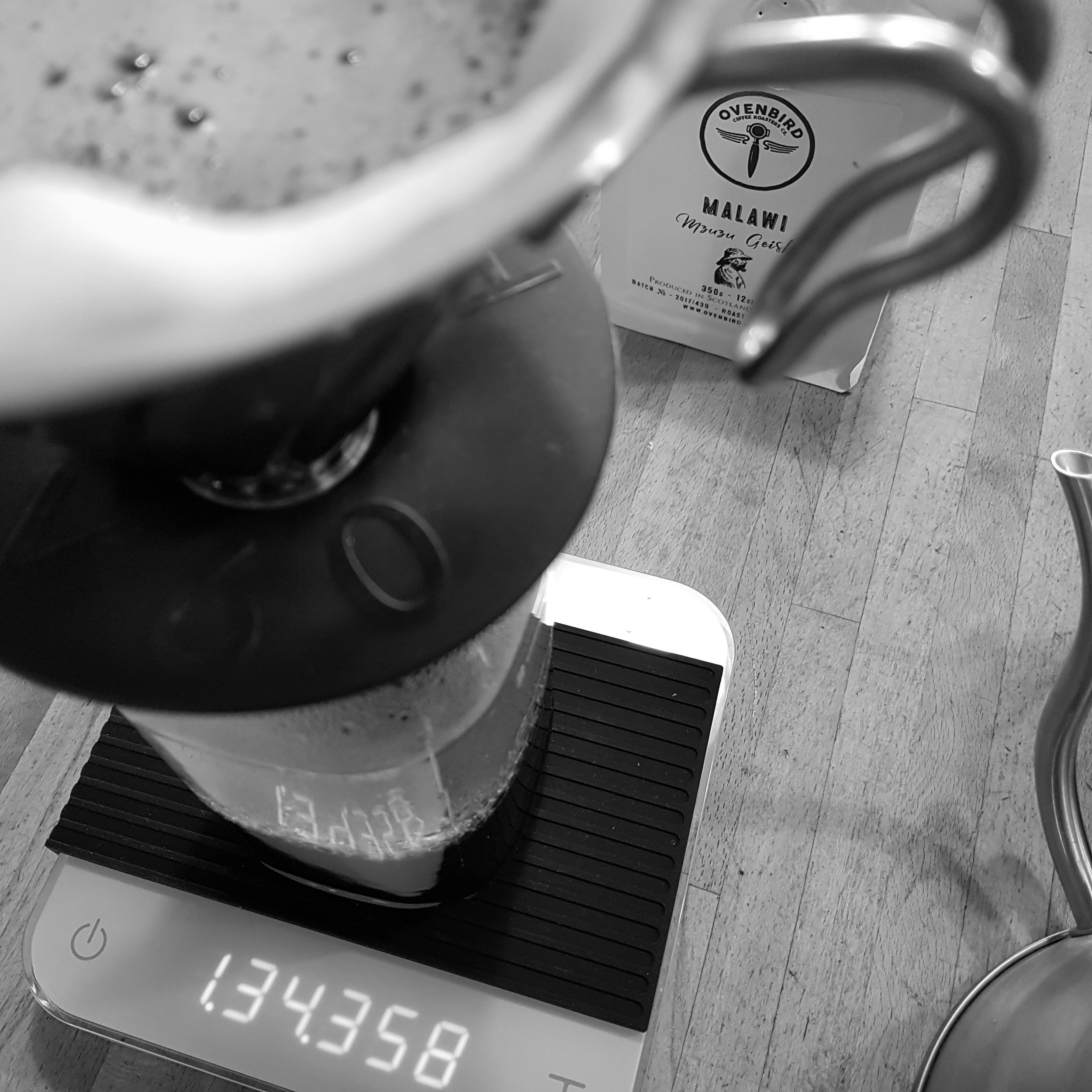
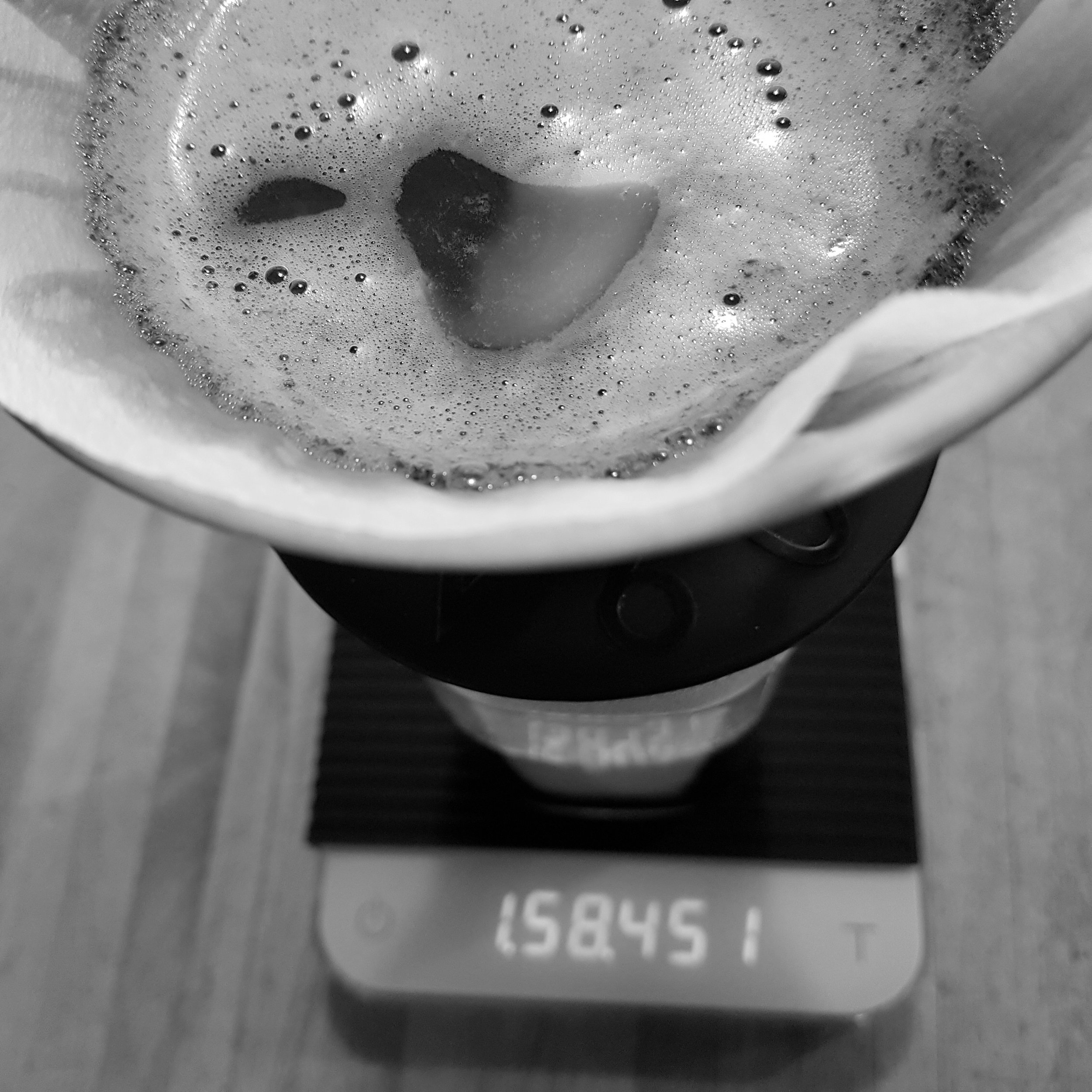
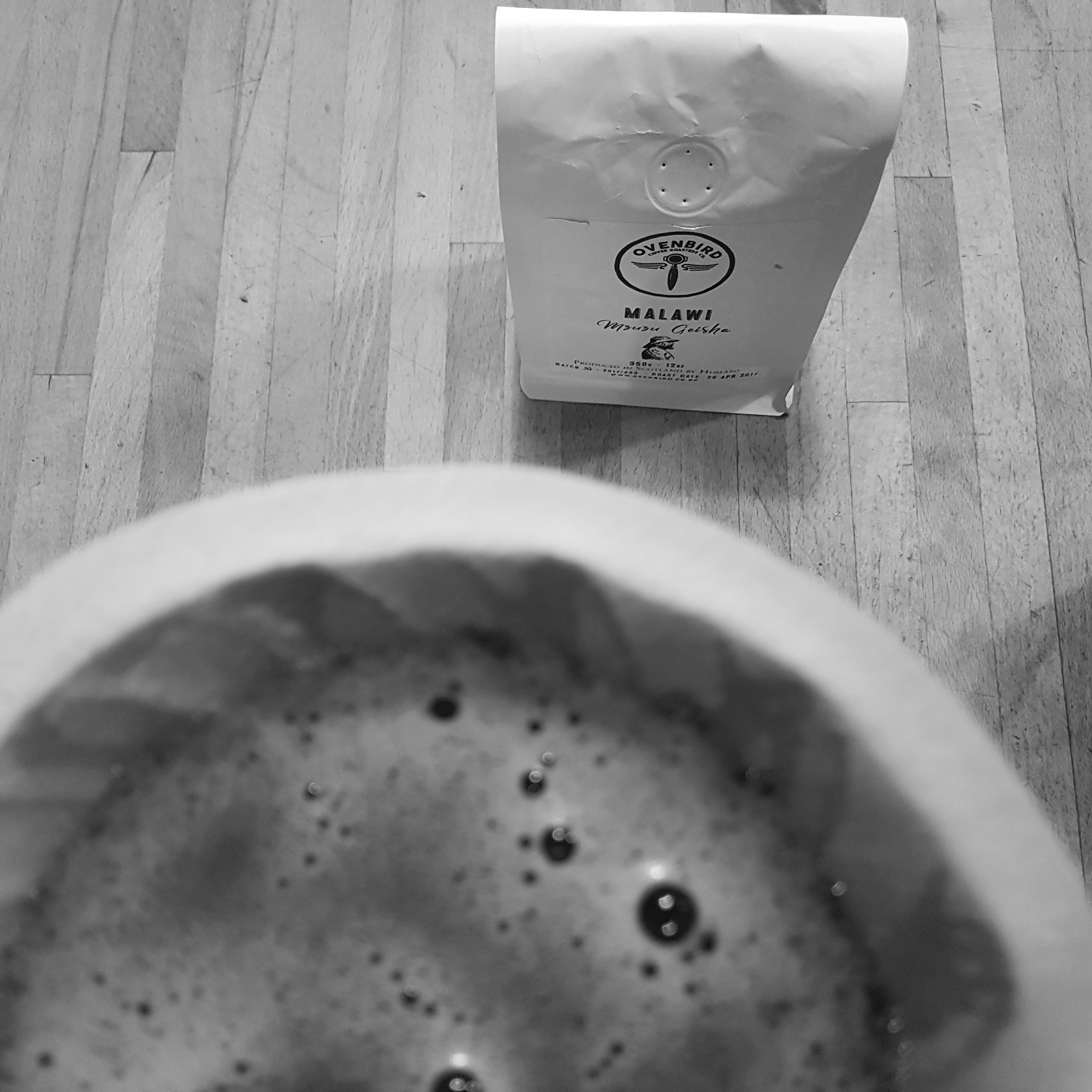
It is evenly roasted, nice and light, but with a surprising amount of chaff apparent in the bag. This was most noticeable at the very end, when I had to use a sieve to separate the beans from the chaff. Nevertheless, the dry fragrance is fantastic, a melange of dark chocolate, salted nuts and pipe tobacco.
I tried it first in a Hario v60 and later in a Chemex, and it held up well in both. The v60 gave it a lovely, gentle brightness There was a cocoa and rum component, with a pleasant, rounded, medium body. In the Chemex the brightness increased in potency somewhat, while the body evened out nicely.
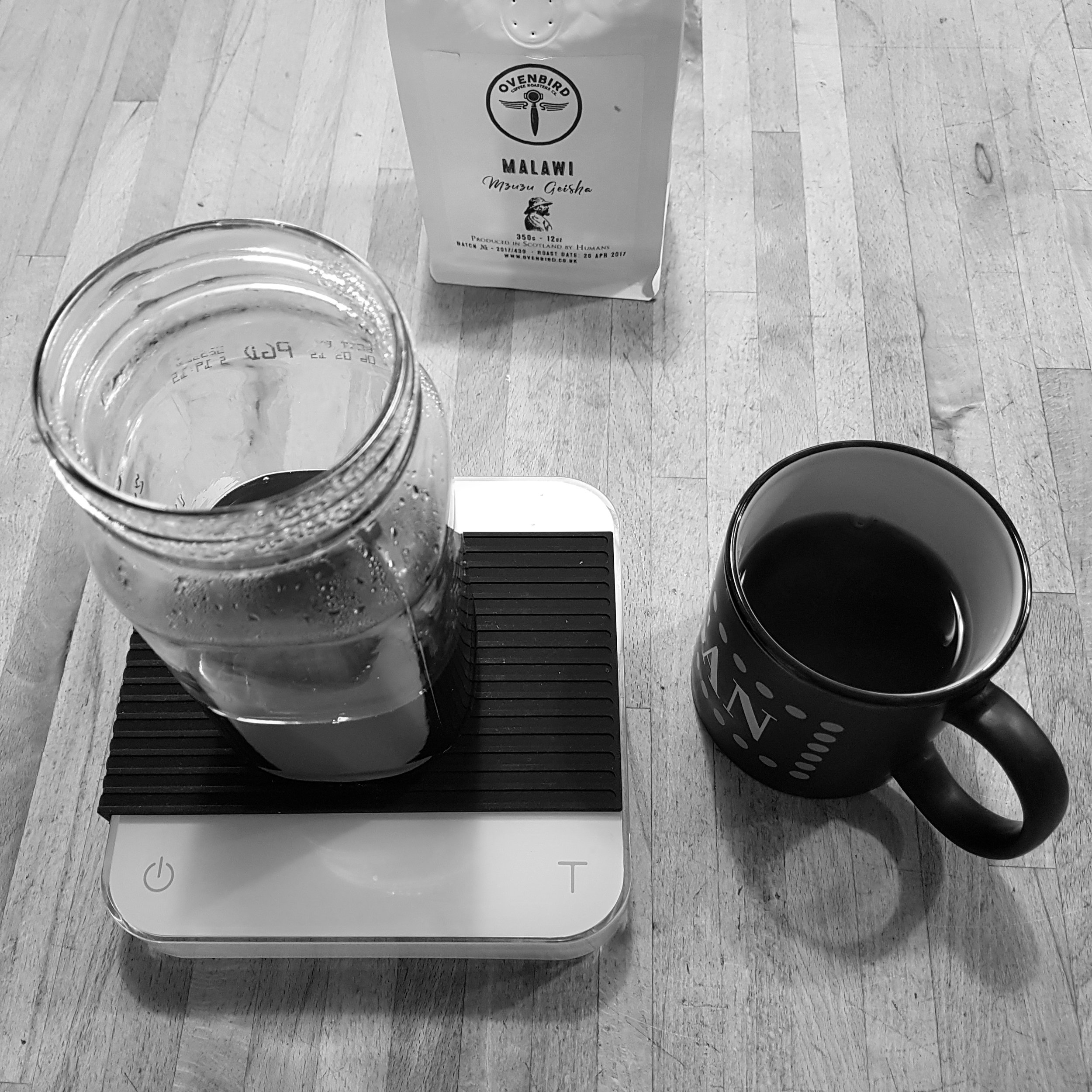
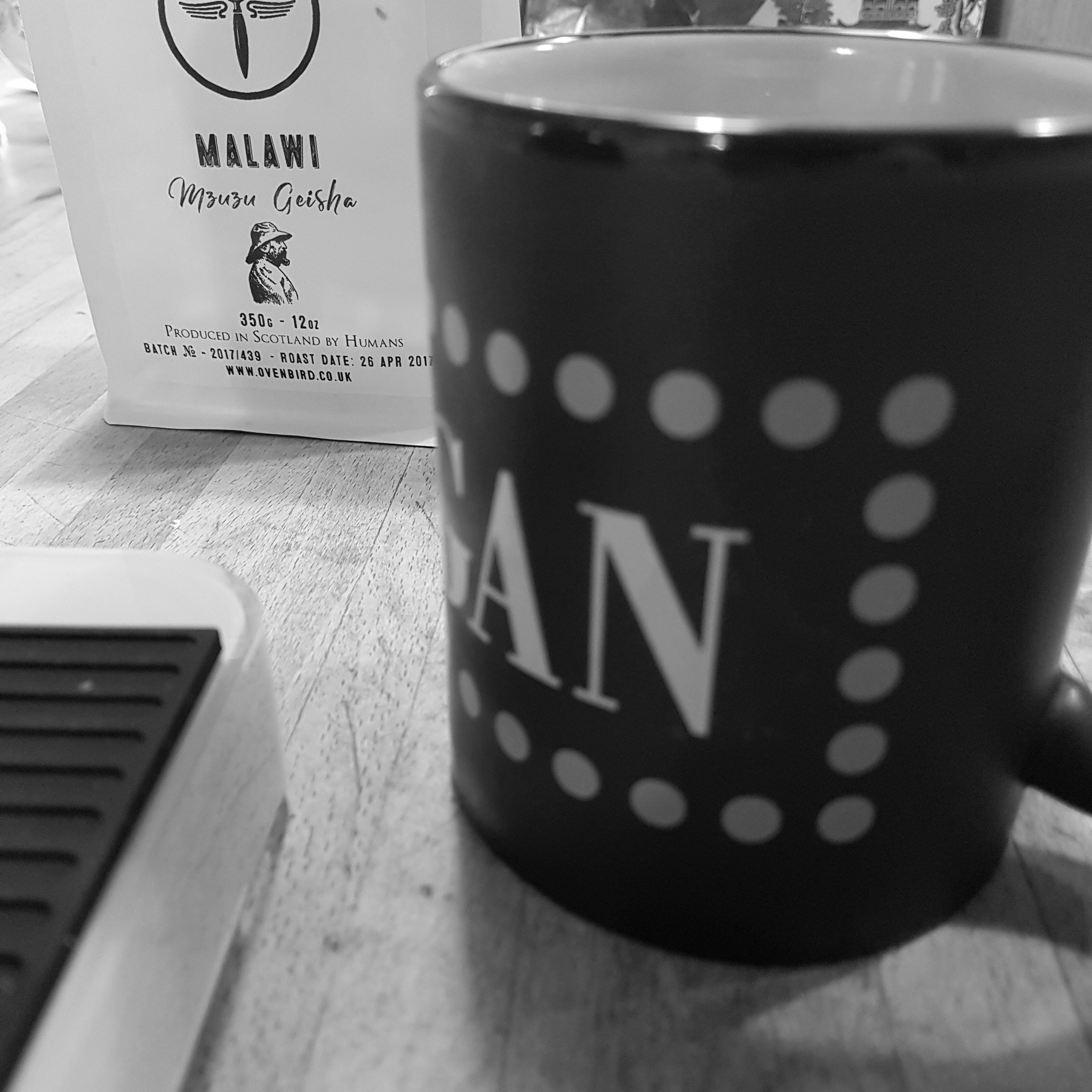
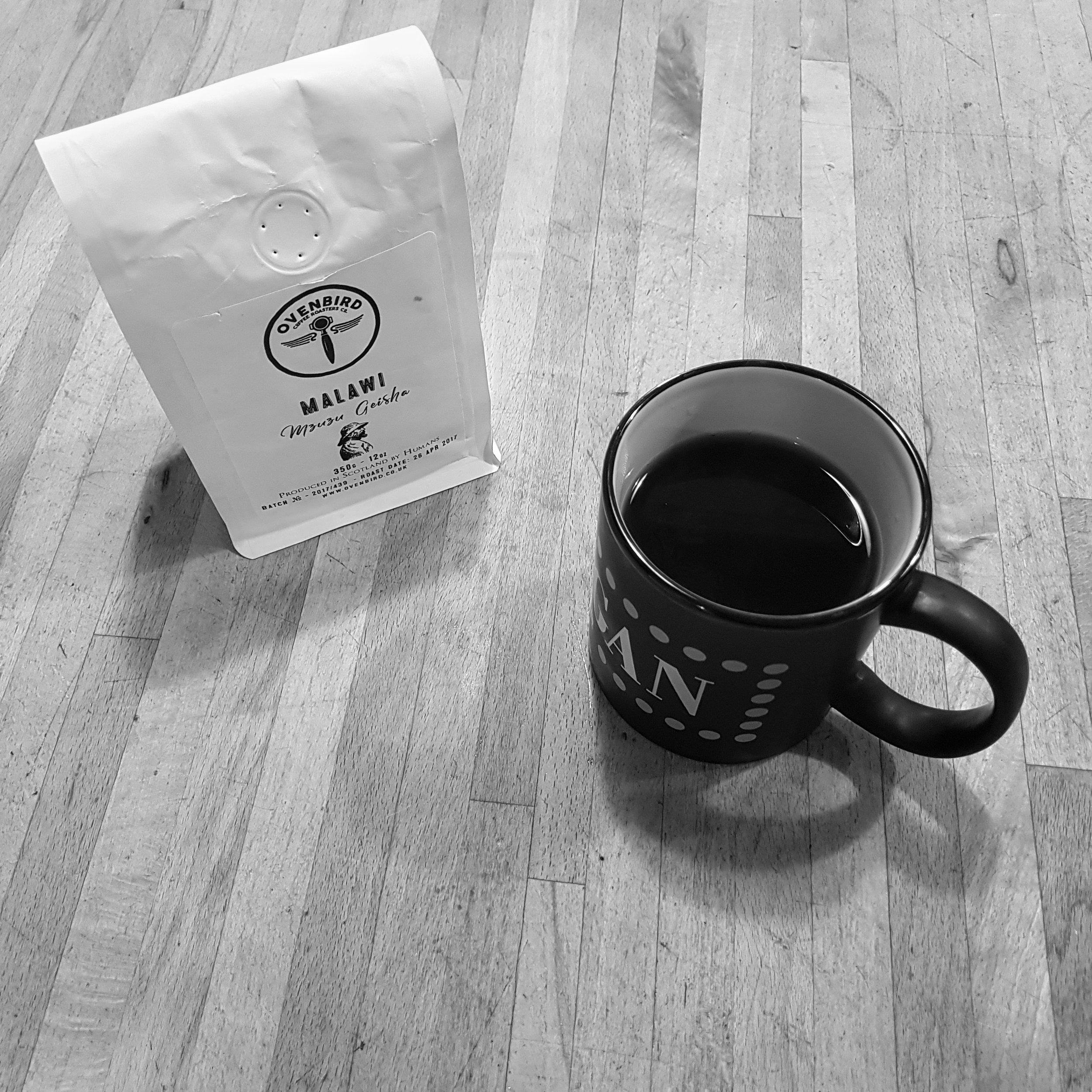
With both there was a floral lightness to the finish, with hints of crisp apple and a slight pepperiness. Overall it is a highly drinkable coffee, simple enough to share with non-coffee-nerd friends but subtle enough to warrant multiple contemplations and brew method experimentation.
I appreciate Ovenbird’s focus on exposing Scotland to intriguing coffees from East Africa, concentrating on doing a few origins well rather than trying to plow through a huge range of regions. They are supporting worthwhile causes, too, such as the rural hospital that the Mzuzu Cooperative is building for its members. If I can drink a delicious cup of coffee and know that, by doing so, I am, in some tiny way, helping Malawian farmers have access to healthcare, then something is going right in the world. It’s not perfect, but it’s something.
Region: Mzuzu
Altitude: 1300m — 2500m
Process: Fully Washed
Variety: Geisha



